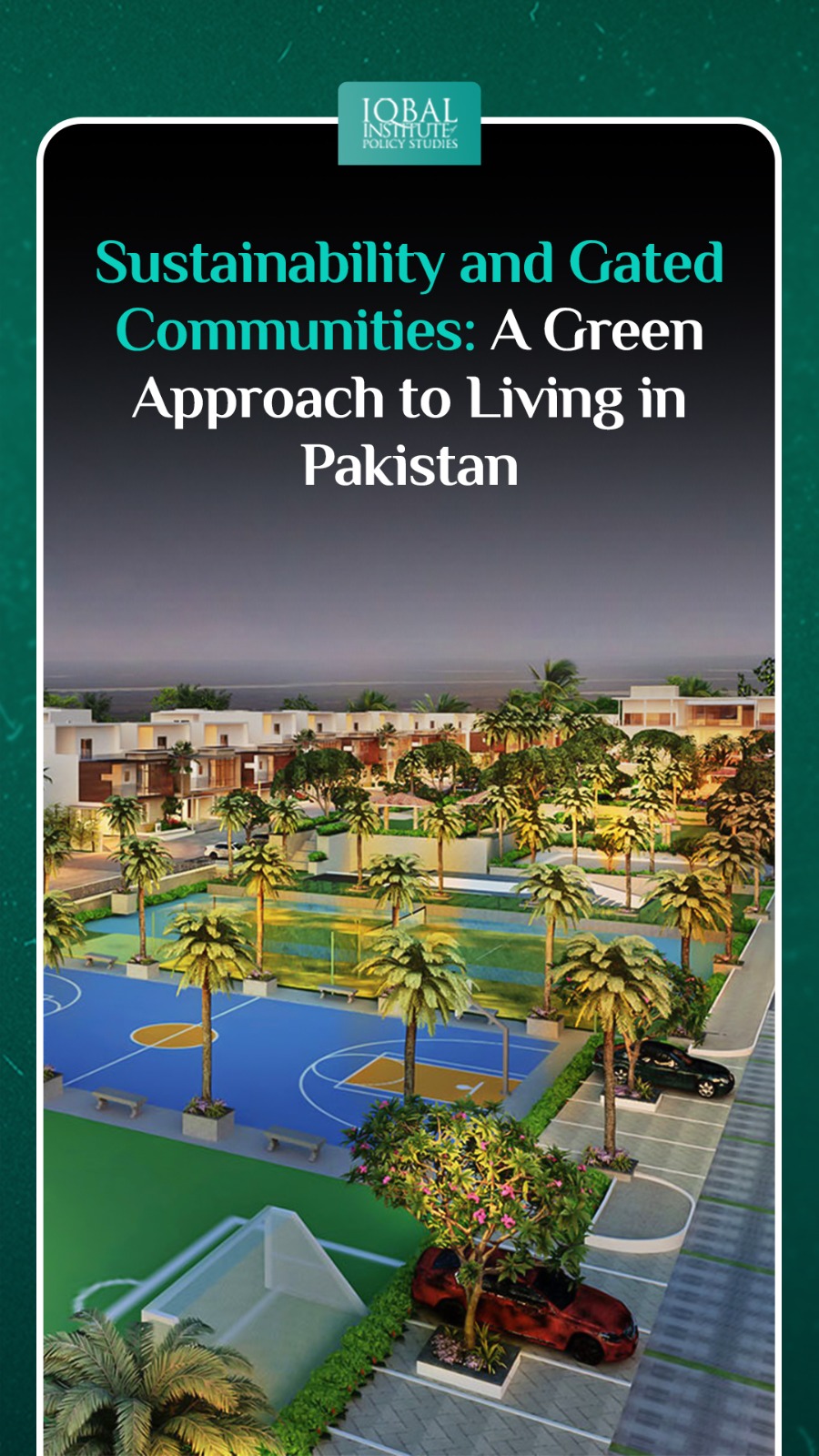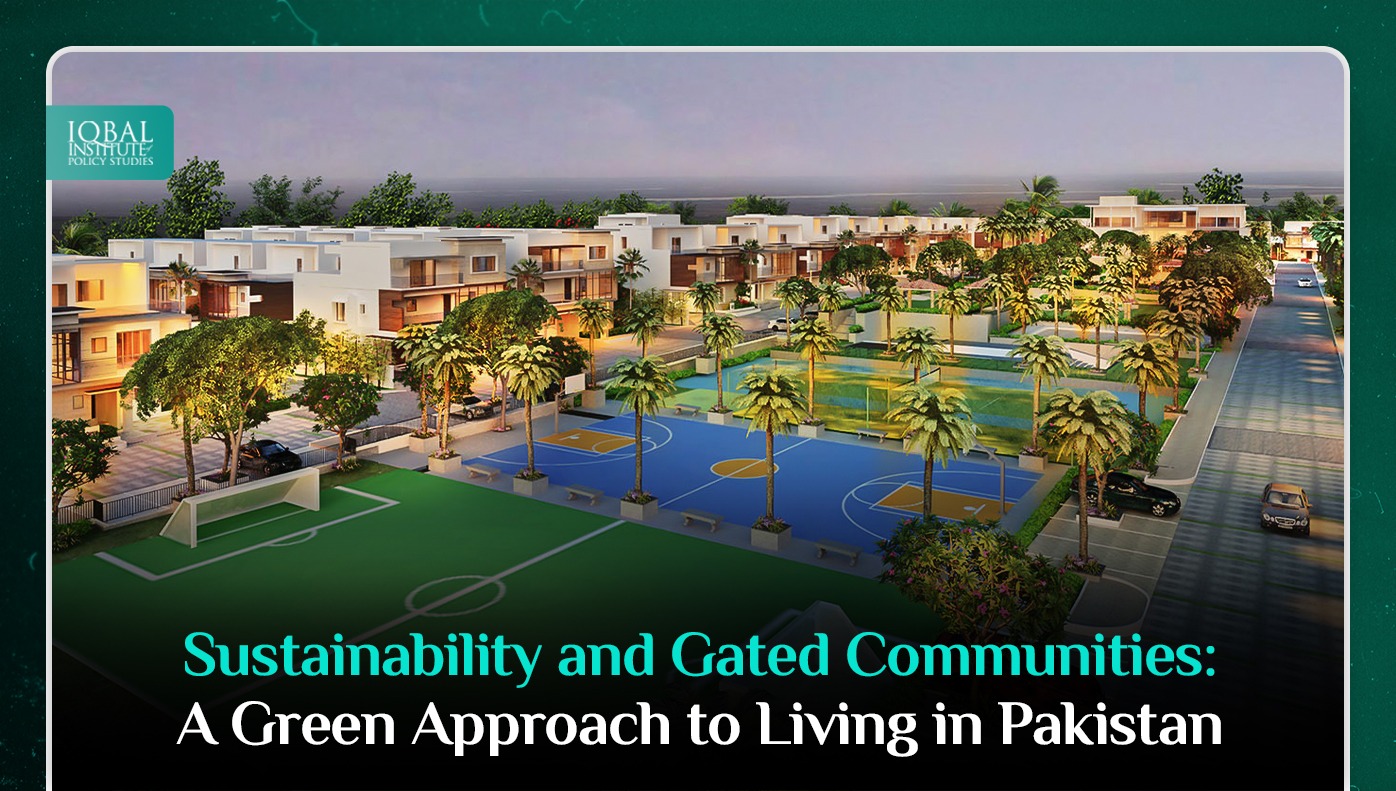In an era marked by increasing environmental awareness and a growing desire for sustainable living, gated communities in Pakistan have emerged as exemplars of green and eco-friendly urban development. As the country’s population continues to urbanize, the demand for secure, modern, and environmentally conscious living spaces is on the rise. This blog explores how gated communities are addressing this demand by integrating sustainability into their design, infrastructure, and daily living, thus paving the way for a greener, more efficient future in Pakistan.
The Green Movement in Gated Communities
Pakistan, like many countries around the world, is experiencing the detrimental effects of climate change, including erratic weather patterns, diminishing natural resources, and increased pollution. In the face of these challenges, gated communities are taking proactive steps to incorporate sustainability principles into their development and management.
Eco-Friendly Infrastructure
Gated communities are embracing eco-friendly infrastructure with open arms. Solar panels, energy-efficient lighting, and advanced water management systems are being implemented to reduce energy and water consumption. Rainwater harvesting, for instance, is becoming a standard practice in many communities, ensuring a sustainable source of water for landscaping and other non-potable uses.
Lush Green Landscaping
One of the most visible aspects of sustainability in gated communities is the lush green landscaping. By preserving and nurturing green spaces, these communities not only enhance the quality of life for their residents but also contribute to cleaner air and a healthier environment. Tree-lined streets, manicured lawns, and the presence of local flora and fauna create a harmonious living environment.
Waste Management and Recycling
Managing waste effectively is a vital part of sustainable living. Gated communities are implementing comprehensive waste management systems that include recycling facilities, composting, and responsible disposal practices. This minimizes the environmental impact of waste and promotes a culture of recycling and reusing among residents.
Energy Efficiency
From LED streetlights to smart home systems, energy efficiency is a cornerstone of sustainability in gated communities. Homes are equipped with energy-efficient appliances, and community-wide initiatives encourage residents to minimize their energy consumption. This not only lowers utility bills but also reduces the carbon footprint of the community.
Green Building Practices
Gated communities in Pakistan are increasingly adopting green building practices. These practices include using eco-friendly construction materials, efficient insulation, and designs that maximize natural lighting and ventilation. Green buildings not only consume less energy but also provide a healthier and more comfortable living environment for residents.
Sustainable Transportation
In response to the growing traffic congestion and air pollution in urban areas, gated communities are encouraging sustainable transportation options. Walking and biking paths, electric vehicle charging stations, and efficient public transportation links are making it easier for residents to reduce their reliance on personal vehicles.
Community Engagement
Sustainability is not just about eco-friendly infrastructure; it’s also about fostering a culture of responsible living. Gated communities actively engage their residents in sustainability efforts. They organize eco-conscious events, conduct workshops on environmental conservation, and promote sustainable practices, such as water conservation and waste reduction. This sense of community involvement strengthens the bond among residents and creates a shared commitment to sustainability.
The Benefits of Sustainable Gated Communities
The shift towards sustainability in gated communities in Pakistan brings about numerous benefits for both residents and the environment:
Healthier Living
Sustainable practices result in cleaner air, safer water, and a reduced risk of environmental health hazards.
Economic Savings
Energy-efficient homes and practices lead to lower utility bills, making sustainable living more affordable in the long run.
Higher Property Values
As sustainability becomes a more significant factor in property value, residents in these communities can expect their investments to appreciate over time.
Community Well-being
A commitment to sustainability fosters a stronger sense of community and shared values among residents.
Environmental Stewardship
By embracing sustainability, gated communities play a crucial role in mitigating the environmental challenges facing Pakistan.
Challenges and the Way Forward
Despite the many advantages of sustainable gated communities, challenges persist. The cost of implementing green infrastructure can be a hurdle, and regulatory support for eco-friendly practices is still evolving in Pakistan. Additionally, raising awareness and fostering a sense of responsibility among residents is an ongoing process.
To overcome these challenges, it is crucial for developers, residents, and government bodies to work together. Developers should consider long-term sustainability as a central part of their projects. Residents must embrace sustainable living practices and make an effort to reduce their ecological footprint. Government support in the form of incentives, regulations, and oversight is essential for the sustainable development of gated communities in Pakistan.
Conclusion
In conclusion, the emergence of sustainable gated communities in Pakistan represents a significant step forward in the nation’s journey toward a more environmentally conscious and responsible future. By embracing green building practices, eco-friendly infrastructure, and community engagement, these communities are setting a precedent for the rest of the country. As the demand for sustainable living continues to grow, these communities are leading the way, demonstrating that it’s possible to enjoy the comforts of modern life while preserving the environment for future generations. The future of housing in Pakistan is undeniably green, and the way forward involves continued commitment to sustainability at all levels.
This article is written by Radma Noman. Radma is a research analyst at the Iqbal Institute of Policy Studies (IIPS).



Leave a Reply